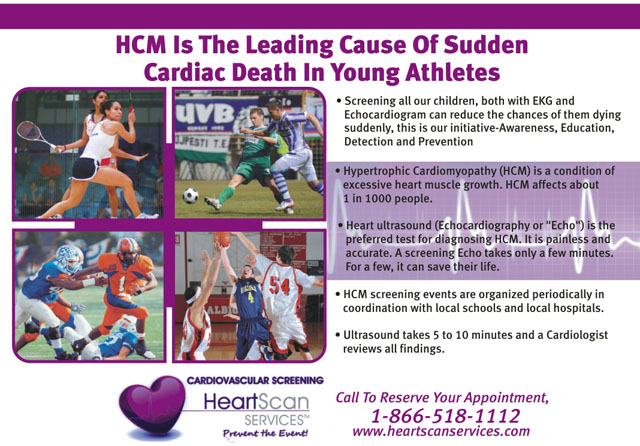ATHLETIC AND ADOLESCENT SCREENING

Hypertrophic cardiomyopathy (HCM) is a disease of the myocardium (the muscle of the heart) in which a portion of the myocardium is hypertrophied (thickened) without any obvious cause. It is perhaps most well-known as a leading cause of sudden cardiac death in young athletes. The occurrence of hypertrophic cardiomyopathy is a significant cause of sudden unexpected cardiac death in any age group and as a cause of disabling cardiac symptoms.
HCM is frequently asymptomatic until sudden cardiac death, and for this reason some suggest routinely screening certain populations for this disease.
How Is HCM Diagnosed?
In general, the echocardiogram is the best method of diagnosing HCM. The echocardiogram allows accurate measurement of the thickness of the ventricular walls, and can detect abnormal heart valve function as well. The electrocardiogram (ECG) also can give important clues as to the presence of HCM.
Both an ECG and echocardiogram should be performed in close relatives of a patient diagnosed with HCM, and an echocardiogram should be performed in any person in whom the ECG or the physical examination suggests ventricular hypertrophy.